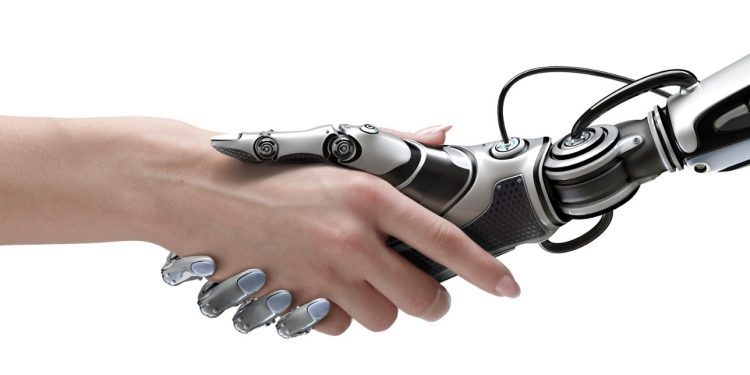Dhanada Kanta Mishra
Hong Kong University of Science and Technology (HKUST) is ranked first among the top 300 young (less than 50 years old) universities of the world as per the Times Higher Education ranking of 2019. It is constantly striving to re-design higher education in fundamental ways. One of the innovative approaches adopted by it recently comprises letting exceptionally talented students to self-design their own curriculum under the Individualised Interdisciplinary Major (IIM) programme. Recently some of the best educators from top universities in Hong Kong gathered to discuss and share their experience on the topic in a one-day symposium titled “Redesigning Higher Education Beyond Boundaries”. Rohit, one of the students from the IIM programme who majored in ‘Robotics’, made a presentation on his experience of the project-driven learning programme. What struck me was Rohit’s assertion that he was too lazy to get up from his chair to pick up a can of soda and, hence, he wanted to build a robot to do such menial tasks for him. While such an example cannot be generalised to apply to the millennial generation, it made me think in despair about the direction and future of education.
The motivation for the symposium was the concern that the exponential advancement of technology is making traditional models of education obsolete. The Fourth Industrial Revolution, known simply as Industry 4.0 or IR4.0 was the main topic of discussion. The onset of the original industrial revolution in the 18th century came with the steam engine, followed by the mechanised assembly line production at the beginning of the 20th century – considered the second industrial revolution. The introduction of computers and automation later in the 20th century is known as IR 3.0. We are now at the beginning of the next industrial revolution characterised by the rapid integration of cyber and physical systems. The technologies that are driving this revolution are the Internet of Things, Cloud Computing, Data Mining, Artificial Intelligence and the like. It is also known for its smart factories where entire manufacturing processes are not only highly automated but are capable of real-time decentralised decision making with appropriate interaction between physical and digital processes with minimal human interaction as needed. Thus the world is evolving at lightning speed, at a pace it has never experienced before, steering us towards the industrial revolution 4.0.
Industry 4.0 is making the future of work and life more multifaceted and intertwined. Hence, it is vital for higher education to answer to the needs of future work and cultivate students with meta-cognitive competencies and multi-disciplinary knowledge, such that they can manoeuvre in the unpredictable future. What kind of learning is required for the 21st century? Is the current higher education model and structure sufficient to develop the necessary knowledge and competence in students? How can higher education be redesigned to better prepare graduates to be the future-ready workforce? Hong Kong being at the forefront of most of these developments provides a good glimpse of that future. The individualised inter-disciplinary major allowing students to design their own learning pathways is one such approach. Another approach which has drawn a lot of attention is the programme of Olin College (a private undergraduate engineering college in Needham, Massachusetts), based on strong project and multi-disciplinary orientation. The focus is not only on what the students learn, but rather on what they are able to do with what they learn. The entire curriculum consists of a series of projects requiring teamwork and knowledge from multiple disciplines with coursework dictated by the requirement of the project. Yet another concept gaining currency is flipped classrooms where the traditional role of teachers and students are reversed. Students are required to learn about specific topics as they work in groups and then present it to the class. The teacher becomes a facilitator and the one-way communication model of teaching-learning is converted into a discussion mode. Creative use of technology in classrooms is also playing an increasingly innovative role. For example, students can participate in online instant surveys or quizzes using their smartphones. Similarly, online and on-demand education is showing a lot of promise with the spread of Massive Open Online Courses (MOOC) on platforms like Coursera, edX and on a national level India’s very own NPTEL (National Program for Technology Enhanced Learning) and Swayam.
Industry 4.0 is expected to help make manufacturing more efficient, automated, less polluting and more sustainable. It is expected to make our devices, homes, buildings and cities smarter. It will certainly require substantially different kind of education to prepare the young generation for this new era of innovation and entrepreneurship. However, the worrying aspect is the attitude that the next generation brings to this new framework of learning. If it’s to only make life easier on a material level as articulated by Rohit, the whole purpose of learning would be defeated. With the climate crisis looming large and growing social inequity getting worse by the year, the new paradigm of education must encompass a very strong component of social consciousness. Such a socially compassionate mind-set can drive the brilliant young minds towards searching for solutions for the pressing problems of the world rather than be bounded by narrow personal interest. In such a scenario, a Rohit will be building a robot to help senior citizens with mobility challenges rather than a robotic arm to fetch a can of coke.
For higher education in India, the bulk of our students will continue to be trained in the traditional model as opposed to a handful in elite institutes. As the developed world moves forward rapidly, Indian policymakers will have their work cut out to find ways to address the growing gap. This challenge is already evident in the employability crisis leading to large scale drop in employment in the IT sector. It will be difficult in the short term for India to overcome the deficit in infrastructure, technology and investment in higher education. However, we can certainly have an edge in development and deployment of appropriate technology for the masses that would address challenges of agriculture, drinking water, sanitation, pollution etc. That can set the right example for the developed world to fine-tune their models going forward.
The author is a civil engineering professor and principal of KMBB College of Engineering and Technology currently visiting Hong Kong University of Science and Technology as a Research Scholar. He can be reached at dhanadam@gmail.com






































